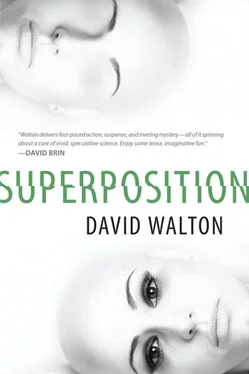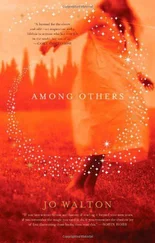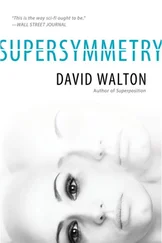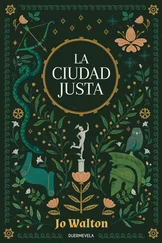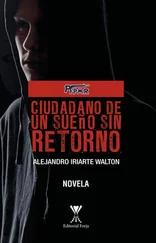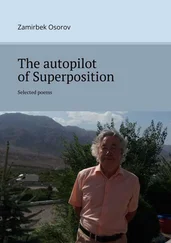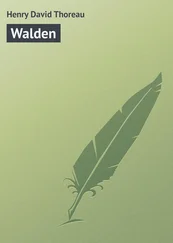Someone else was living my life. That the someone else was technically me didn’t help very much. He was running around free, going where he pleased, hanging out with my friends, eating at restaurants, and spending time with my daughter, while I returned to my jail cell each night and would probably be convicted of murder. The prospect of our waveform collapsing didn’t provide much encouragement: the more like him the final Jacob turned out to be, the more I would cease to exist. The more like me the final Jacob turned out to be, the more likely it was that I would spend the rest of my life in jail. I was helpless, while the man who was living my life investigated things without me. What if he discovered a way to force the waveform collapse and choose which way it resolved? I could hardly fault him for making the obvious choice.
It was strange how I had begun to use the third person to describe my other self. Jacob was me in principle, but it felt less and less like that was true the more our experiences diverged. We had both been the same person the day Brian died, but were we anymore? It was hard to say.
And still the jury didn’t return. Every time someone coughed or a door opened or closed, my stomach muscles clenched in a jolt of panic, thinking that the jury was back. The waiting was agony. I asked to use the restroom, though I really didn’t need to, simply to get up and move around.
The bailiff took me to a special restroom separate from the ones open to the public. Sitting alone in the stall, looking up at the narrow, barred window, I thought about suicide. I wasn’t even sure how I would do it—a shoelace around the light fixture? A piece of broken glass to the wrists? I wouldn’t technically be dead, if I did it—Jacob Kelley would still be alive. Eventually, only one of us could live anyway, and it seemed better that it be him. I didn’t think I could really do it, though, at least not using the brutal and chancy means available. These were just the idle reflections of a man feeling cheated by life.
Fifteen minutes after I shuffled back into the courtroom, the jury finally reappeared. They were welcomed by the scrape of shifting chairs and the rustle of papers as the courtroom came alive again. The jurors’ faces were somber, giving no hint of the verdict. They filed in awkwardly and a few glanced down at their chairs, as if uncertain whether they were supposed to sit. Finally, after a few false starts, they all sat down.
“Ladies and gentlemen of the jury, do you have a verdict?” Judge Roswell asked.
The chairwoman stood. “No, Your Honor.” She looked embarrassed. “We didn’t have enough time to talk through everything, but the officer said we had to come back in now.”
I glanced at the time. It was five after eight.
Roswell didn’t look surprised at the lack of verdict. I guessed she had ousted them because it was past closing time, and her question had been mere formality. “Do you feel that with more time you will be able to reach a verdict?”
“Yes, Your Honor.” There was no hesitation, so I figured the group must have been asked the question already, and were just now repeating it for the record.
“Very well,” Roswell said. “Court will reconvene tomorrow at eight o’clock, and your deliberations can continue at that time. The court officers will direct you to your hotel and answer any questions you might have.”
“How can we get our clothes for tomorrow?” one juror blurted out.
“You will be able to call for a family member or friend to bring you what you need. If that is not possible, considerations will be made. Please direct any further questions to the court officers. Court is now adjourned.”
The packed gallery erupted in noise. Terry slid a thick sheaf of papers over to me. “In case you want to review the relevant case citations,” he said.
I gave him a strange look.
“Your double asked me to give this to you,” he said. “He said you should read it carefully.”
I nodded and tucked the papers under my arm. I stood quietly, looked at no one, and allowed the bailiff to lead me out.
I had only been in my cell for five minutes when a guard told me I had a visitor. I had just seen Terry, so it could only be the other Jacob, come to apologize or commiserate. I really didn’t feel up to seeing another reminder of the life I wasn’t living.
“Tell him I don’t want to see him,” I said.
This was enough to prompt a raised eyebrow from the bored guard. “You’re refusing your visitor?” He didn’t care one way or another, but most inmates would go see anyone at all, even a cop, just to get out of their cells and relieve the boredom. I considered the alternative: another round of interminable waiting and bitter contemplation. “I ain’t waiting all day,” the guard said.
“Fine, I’ll see him,” I said.
“Move it, then.”
We walked back to the space-age meeting rooms, with their transparent walls and molded yellow chairs, where someone was waiting for me. It wasn’t Jacob. It was a uniformed cop, a big guy with a blond crew cut and red blotches on his pale skin. I recognized him as Officer Peyton, the man who had responded to Elena’s 911 call.
I dropped into a chair across from him. “You here to post my bail?” I asked sarcastically.
“No.”
“It’s only ten million dollars. A nice round number.”
“Mr. Kelley, I was at your trial.”
“Yes, I know. For the prosecution. You told the jury all about my motive for murder.”
The blotches on Peyton’s face grew more pronounced. “I’m sorry about that.”
“Yeah, I bet.”
“I saw what happened in court today.” He said it quietly, almost whispering, as if he were having trouble getting the words out. “There were two of you, just like you said. I saw you both as clearly as I can see you now. Unless you have a secret twin brother that there was no record of, you must be telling the truth.”
“Imagine that.”
“If you’re telling the truth about that, then maybe you’re telling the truth about the rest, too. That there were two of your friend Vanderhall and you really did see him at your home at the same time that he was dead in the bunker.”
“So you believe me now,” I said.
“Some of it, anyway,” Peyton said.
“Fat lot of good that does me. Tomorrow is when they decide to put me away for life.”
Peyton shrugged. “Maybe they’ll find you innocent.”
“I can’t say how encouraged I am by your legal expertise,” I said.
“It could happen. They were talking a long time in there, and they didn’t decide yet. Maybe this whole thing will just blow away.”
I jumped to my feet, shaking. It had been weeks since I punched anything, and I was only barely restraining myself from knocking that soft, pale face of his inside out. “I found the dead bodies of my wife and daughter and son. Everyone I know thinks I’m a murderer.” I leaned over and shouted into his face. “This thing will not just blow away !”
The guard outside yanked open the soundproof door. “Everything all right in here?”
“We’re fine,” Peyton said. “We’re not done yet.”
The guard gave his stick a menacing wave in my direction. “Sit down,” he said. I threw myself back into the chair. The guard left.
“That day when I came to your house, I saw something,” Peyton said. “Something I never told anyone else about.” He hesitated. “I saw a ghost in your back yard.” He looked at me expectantly, but I just stared back at him. “Esposito and Ashford walked around the house first, and they didn’t see anything, but I took a look afterward. There was a ghost standing in the middle of your yard, no footprints anywhere around, just standing there surrounded by smooth, unbroken snow. And then it was gone.”
Читать дальше
